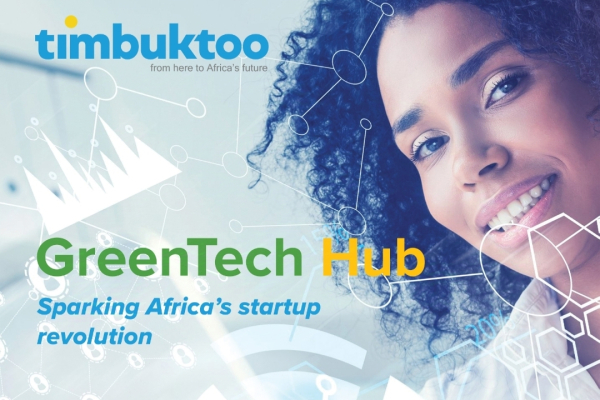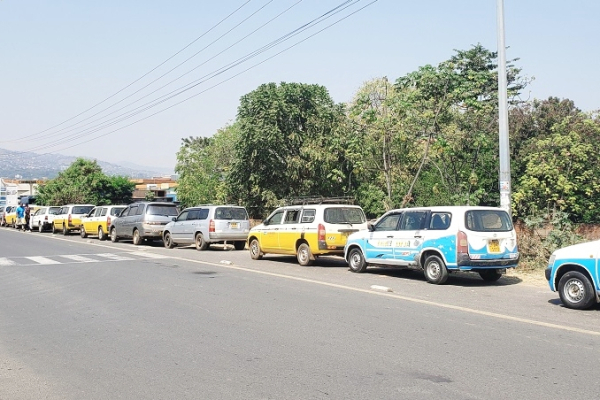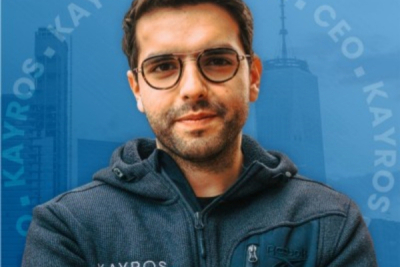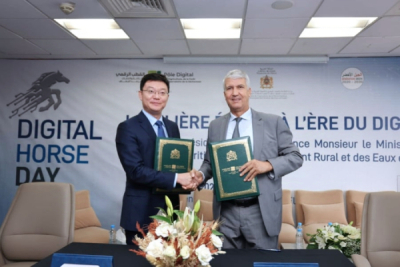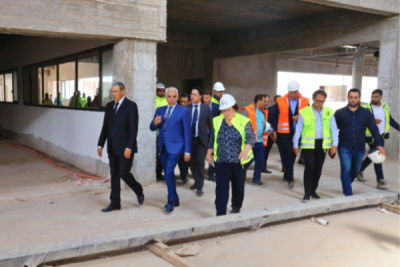Timbuktoo GreenTech Hub in Kenya has announced its Energy Accelerator Program to support African startups tackling the continent’s energy challenges.
Participants will receive mentorship, technical assistance, and the opportunity to test solutions through a regulatory sandbox. Additionally, startups will gain access to financing and networking opportunities with investors and partners to scale their operations.
Eligible startups must contribute to the Sustainable Development Goals (SDGs) and have been operational for at least three years. Applications are open until October 20, 2024, with the accelerator running from January to June 2025, following a bootcamp in November 2024 in Nairobi.
For several months, Burundi has been grappling with an unprecedented fuel crisis. To address this situation, authorities are turning to digital solutions to optimize resource management at gas stations.
As part of efforts to improve fuel management, the Burundi Petroleum Company (Sopebu) recently announced the launch of a digital registration process for vehicles and machinery purchasing fuel at gas stations. This program, which began on September 30 and will run until October 7, aims to facilitate the registration of vehicle owners at designated registration sites in Bujumbura.
According to Sopebu, a mobile app called "Igitoro Pass V 1.0" has also been developed, allowing users to register remotely. The digital solution covers a wide range of vehicles, including buses, minibuses, trucks, dump trucks, administrative and diplomatic vehicles, tractors, private cars, tuk-tuks, motorcycles, and even generators.
This initiative is part of a broader strategy to modernize the sector, particularly critical amid a severe fuel shortage and frequent power outages that are impacting all aspects of daily life in Burundi. By digitizing the fuel sector, Sopebu aims to better regulate the amounts of fuel allocated to each type of vehicle. For example, a weekly quota of 80 liters of fuel is planned for small cars, with 40 liters per visit, while larger vehicles will be allocated 120 liters, or 60 liters per visit.
The digitization effort is also expected to improve stock management traceability, combat fraud more effectively, and optimize the fuel-related database management. By leveraging modern technologies, Sopebu aims to increase transparency and operational efficiency while ensuring fair fuel distribution for all users.
Samira Njoya
A trained actuary, he has accumulated several years of experience working for insurers in France. Eager to modernize the industry, he is betting on technology.
Kays Bouachik (photo) is a Moroccan finance expert and entrepreneur. He is the co-founder and CEO of Kayros, a startup that helps mutual insurance companies and brokers swiftly launch their insurance products and achieve their commercial growth targets.
Founded in 2022, Kayros accelerates the growth of mutuals and brokers through digital solutions. It offers insurers, mutuals, and brokers an innovative platform that optimizes every step of the customer acquisition and underwriting process. This platform integrates acquisition and underwriting channels to streamline the entire customer journey.
Kayros enables the creation of seamless underwriting pathways and the deployment of insurance products across all distribution channels. It also provides personalized support to brokers in the launch phase, rapidly growing startups, mutuals looking to fast-track their digital transformation, and wholesale brokers seeking new growth opportunities.
In addition to his role at Kayros, Kays Bouachik serves on the board of Taillis Labs, a software development company. In 2019, he co-founded Rooit, where he served as COO until 2023. Rooit is an AI-powered social chat solution aimed at revolutionizing the way young people communicate and form friendships.
Kays Bouachik's academic background is equally impressive. He graduated from Paris Dauphine University-PSL, earning a bachelor's degree in financial mathematics in 2016 and a master's degree in actuarial science in 2017. He also holds a master's in financial engineering from CY Tech, France, completed in 2017.
His professional career began in 2015 at Groupe Crédit Agricole, where he worked as a sales assistant. In 2017, he joined GALEA & Associés, a French insurance firm, as an actuarial consultant.
Melchior Koba
He has several years of experience in developing fintech and blockchain projects. His ambition is to connect Africa with the latest financial technologies.
Moses Adeniji (photo) is a Nigerian entrepreneur specializing in financial technology. He is the co-founder and CEO of Paychant, a startup that provides Africans with access to the financial opportunities offered by the Web3.
Founded in 2019, Paychant is a fintech company offering a fiat payment infrastructure. It allows users across Africa to buy and sell digital assets using traditional local payment methods. The platform supports more than 100 banks and over a dozen e-wallets across the continent.
This solution enables users to easily transition from traditional currencies to cryptocurrencies. The company's mission is to connect Africa’s traditional financial system with the world of decentralized finance (DeFi).
"We are committed to building transparent solutions that allow people in emerging economies to participate in and benefit from decentralized finance," the startup explains on its website. Paychant supports over 40 digital assets and offers more than 150 payment methods.
Moses Adeniji holds an accounting degree from Lagos State Polytechnic, which he obtained in 2016. After his studies, he worked as a frontend engineer for startups AfricaLinked.com and TIG. The former is a directory of products, companies, and individuals, while the latter is a fintech platform that uses the digital currency Tigereum to buy, sell, send, and pay through social networks.
Melchior Koba
Agriculture is vital to African economies. With the technological revolution, digitizing the sector has become a priority for many countries, offering opportunities for greater efficiency, sustainability, and inclusive growth.
On Tuesday, October 1, Morocco's Minister of Agriculture, Maritime Fisheries, Rural Development, Water and Forests, Mohammed Sadiki (photo, right), signed an agreement with David Li (photo, left), CEO of Huawei Morocco, to support the digital transformation of the agricultural sector. This initiative, finalized during the 15th edition of the El Jadida Horse Show, aims to introduce connected platforms, develop agricultural e-services on pilot sites, enhance farmers' skills, and promote youth entrepreneurship.
The partnership aligns with the "Green Generation 2020-2030" strategy launched by the government in February 2020. One of the key goals of this strategy is to connect two million farmers to public services by 2030, fostering a more modern and inclusive agriculture.
Huawei's support is expected to facilitate the digitalization of the sector through the introduction of technologies that will optimize the use of inputs, expand market access, improve transaction transparency, develop mobile banking, and strengthen food safety through better traceability.
According to the 2023 report by the NGO Agra Africa, titled Empowering Africa's Food Systems for the Future, digital technologies will be crucial in addressing three persistent challenges in African agriculture: inefficiency, exclusion, and unsustainability. Meanwhile, a study by Mordor Intelligence estimates that the global digital agriculture market will reach $20.01 billion in 2024 and could grow to $32.96 billion by 2029, with an annual growth rate of 10.5%.
Samira Njoya
Morocco aims to become one of Africa’s leading technological hubs. To achieve this, the country is ramping up projects to meet the goals outlined in its national strategy document by 2030.
On Tuesday, October 1, Moroccan authorities inaugurated a digital skills complex in Lahraouyine, in the province of Mediouna. The goal is to train young Moroccans in digital professions and strengthen the capacities of businesses in this field.
The center provides training in software development, programming languages, app and website development, data analysis, digital marketing, cybersecurity, performance analysis, and artificial intelligence.
This initiative comes just days after the unveiling of the national strategy "Digital Morocco 2030," which aims to create 240,000 direct jobs in the technology sector by 2030. It is an integral part of the National Initiative for Human Development (INDH), which will contribute to achieving this goal. According to the International Telecommunication Union, Morocco ranks second in Africa in the 2024 Development Index with a score of 86.8 out of 100—well above the continental average of 50.3.
Ultimately, this complex could help create economic opportunities, reduce the digital divide, and bridge the gap between urban and rural areas.
Adoni Conrad Quenum
Artificial intelligence is developing rapidly, both in Africa and across the rest of the world. In Ghana, a young entrepreneur is harnessing this technology to benefit the healthcare sector.
Darlington Akogo (photo) is a Ghanaian artificial intelligence (AI) expert and entrepreneur. He is the founder and CEO of minoHealth AI Labs, a tech startup that is using AI to revolutionize the healthcare sector in Africa.
Founded in 2017, minoHealth AI Labs is a pioneering company in the application of AI to healthcare. It helps medical institutions provide quality care at affordable costs by automating medical diagnostics, prognostics, and predictions using AI, data science, and biomedicine.
In the field of radiology, minoHealth AI Labs has developed AI systems capable of automatically diagnosing 14 thoracic conditions, including pneumonia, fibrosis, hernia, and pleural effusion. The system also aids in breast cancer detection through mammography.
The startup has also developed AI solutions to combat malaria, facilitate COVID-19 screening, and identify damage caused by tuberculosis. Moreover, it applies AI to other fields such as biotechnology, oncology, regenerative medicine, neuroscience, optometry, epidemiology, and dietetics.
Darlington Akogo is also the CEO of karaAgro AI, a company he founded in 2018 that offers precision agriculture solutions to help farmers increase yields and reduce crop stress. In 2019, he established the Runmila AI Institute, which he leads as Executive Director, to train Ghanaians and Africans in artificial intelligence.
Additionally, Akogo chairs TG-AI4Radiology, a think tank of the International Telecommunication Union (ITU) and the World Health Organization (WHO). He also leads AI Economy, a group working to define a continental AI strategy within the African Union.
From 2019 to 2020, Darlington Akogo served as an AI and Industry 4.0 expert for the Organization of African, Caribbean, and Pacific States (OACPS). He later co-chaired the global strategic group on digital health and AI, created by the University of Oxford.
Melchior Koba
Egypt's data center market is seeing a surge in investment. On September 18, Prime Minister Moustafa Madbouli unveiled a green data center project, which will be developed in partnership with international investors.
Tech companies Intro Technology and Oman Data Park have signed a memorandum of understanding to build a data center in Egypt's Suez Canal Economic Zone. Valued at $450 million, the facility is expected to provide cloud solutions, Internet of Things (IoT) services, and drive digital transformation in both Egypt and the wider Middle East and North Africa (MENA) region.
“We look forward to working together to provide digital solutions through advanced data centers that meet the growing needs of companies worldwide to establish a presence in the region,” said Maqbool Al Wahaibi, CEO of Oman Data Park. The data center will offer over 80,000 square meters of operational space.
This partnership comes amid a surge in investments in Egypt's data center market. According to Arizton, the Egyptian data center market was valued at $182 million in 2023 and is projected to reach $513 million by 2029, representing a growth rate of 18.85% over this period.
“The Egypt data center market is on a notable upward trajectory, fueled by factors such as heightened digitalization, a surge in cloud service uptake, and the growing need for colocation services. A thriving IT landscape marks this industry, government efforts to bolster digital infrastructure, and Egypt's advantageous geographical position, making it an ideal hub for data center activities,” Arizton wrote in a market overview earlier this year.
Investments in data centers are expected to help address Egypt's data center capacity gap. Arizton forecasts that over 109 MW of capacity will be added across Egypt between 2024 and 2029. It’s worth noting that Africa as a whole requires 1,000 MW and 700 new facilities, according to Oxford Business Group’s “Data Centres in Africa Focus Report” published in April 2024.
Isaac K. Kassouwi
Start-ups, particularly those in technology, are key job creators. However, these startups are usually faced with financial hurdles. Providing essential capital to early-stage companies will help Africa tap into the innovation economy, fostering growth and resilience in the global tech landscape.
On October 1, a new $17.2 million (300 million rand) Seed Fund of Funds dedicated to technology start-ups was launched in South Africa. The fund, backed by the SA SME Fund, the Department of Science and Innovation, the Technology Innovation Agency (TIA), and E Squared Investments, aims to address a shortfall in early-stage capital for local start-ups.
Patrick Krappie, TIA’s acting CEO, stressed the government’s role in fostering innovation ecosystems. “The Seed Fund of Funds will catalyze a wave of new start-ups by enabling them to transition from ideas to viable enterprises,” Krappie said, adding that the fund would help place South Africa’s venture capital industry on sustainable footing.
The initiative aims to fund at least 50 technology-driven companies, focusing on innovation and transformation. Experienced fund managers will oversee the investments, ensuring that these start-ups have the resources to scale both locally and globally.
Ketso Gordhan, CEO of the SA SME Fund, highlighted the importance of seed funding, calling it the "cornerstone of entrepreneurial success" and the "lifeblood of innovation." He emphasized South Africa's wealth of brilliant minds and how the fund will help ensure more of them have the opportunity to succeed.
The launch of the fund is particularly timely as the country continues to grapple with high unemployment rates. As of Q2 2024, 8.4 million people (33.5%) remained unemployed, according to Statistics South Africa. This persistent challenge underscores the importance of fostering job creation, particularly in high-growth sectors like technology.
Start-ups have the potential to generate significant employment opportunities, particularly in innovative fields such as fintech, healthtech, and eCommerce, which are key drivers in South Africa's digital economy. With the new fund targeting at least 50 technology-driven companies, it can help reduce the country’s high jobless rate by empowering start-ups that contribute to both economic growth and job creation.
Hikmatu Bilali
He is a dedicated entrepreneur driving digital innovation in Gabon. Over the years, he has partnered with the government to advance the country's technological development.
Thierry Dzime (photo) is a Gabonese expert in strategic communication and digital marketing. He is the founder and director of Olatano Market, a digital platform specializing in e-commerce.
Founded in 2021, Olatano Market aims to offer a new e-commerce experience in Gabon. The platform provides an online marketplace connecting thousands of people looking to buy or sell quality products across the country. It offers a wide range of services and tools to help entrepreneurs launch and grow their businesses.
One of Olatano Market’s flagship services is Achat Flex, which allows individuals to pay online through various payment methods, such as cash-on-delivery, mobile money, and credit cards. It also offers the option to purchase a product and pay in installments.
"Our innovative platform is a complete break from the conventional offerings of existing players and addresses the growing demand from customers who want more choice, the ability to compare prices, and access to products and prices no matter where they are in Gabon," said the founder of Olatano Market in 2022.
Thierry Dzime also serves as an advisor to the Gabonese Prime Minister’s office and co-organizes Café Numérique in Libreville, where he oversees marketing and communication. Before founding Olatano Market, he launched Digital Impact Gabon in 2014, a digital agency, and Express Courrier Gabon in 2017, a transportation and express delivery company.
A graduate of Leibniz University in Hanover, Germany, Dzime earned a master’s degree in international management, marketing, and sales in 2011. His career began in 2012 at Petro Gabon, an oil and gas company, where he held the position of sales manager.
In 2019, he became the communications advisor to Gabon’s Minister of Tourism, Trade, and SMEs, and in 2020, to the Minister of Economy and Finance. From 2021 to 2022, he served as the digital advisor to the President of Gabon. During the same period, he also held the role of country director for Baloon Assurance in Gabon.
Melchior Koba
More...
Enhancing digital transformation is essential for accelerating Africa’s digital economy, which is vital for driving innovation and entrepreneurship. With rapid growth already underway, the digital economy stands to benefit significantly from improved connectivity and the establishment of digital hubs, facilitating business expansion and attracting further investment.
Kenya's Cabinet Secretary for the Ministry of Information, Communications, and Digital Economy, Dr. Margaret Ndung'u, met with Italian officials led by Minister of Enterprises and Made in Italy Adolfo Urso in Nairobi on September 30. The meeting discussed Kenya’s collaboration with Italy to boost its digital transformation efforts.
“Kenya is a strategic partner for the development of artificial intelligence in Africa. It is the country that has responded the most to the pilot accelerator program for African startups,” said Minister Urso.
Kenya aims to leverage Italy’s expertise in space and emerging technologies through a partnership focused on enhancing public service delivery, deploying innovative fibre-optic solutions, promoting information exchange, and advancing the production of digital devices and chips. Additionally, the collaboration will explore areas of cooperation in artificial intelligence (AI), particularly under the Mattei Plan. This includes the “AI Hub for Sustainable Development” project, spearheaded by the Italian G7 Industry, Technology, and Digital Ministerial Chairmanship, in collaboration with the UNDP.
The partnership will support Kenya’s Digital Superhighway project, which aims to lay 100,000 km of fibre and establish digital hubs across 1,450 wards. Areas of focus include space tech, AI, and manufacturing digital devices to drive socio-economic development.
This move will support Kenya's digital advancement as it directly supports the country’s growing tech ecosystem. It aligns with Kenya’s World Bank-backed Digital Economy Acceleration Project, which is expected to modernize digital infrastructure and services, in line with the government’s goal of boosting innovation, job creation, and economic diversification.
Hikmatu Bilali
The Mauritanian government is currently developing a roadmap to reform the education system, with digital technology playing a central role. The goal is to modernize teaching methods and integrate technological tools into schools, among other initiatives.
Mauritanian students will soon have access to digital textbooks, thanks to a new initiative by the National Pedagogical Institute (IPN). The reform will begin with the upcoming school year on October 7. The textbooks will be available for download through the "Koutoubi" (My Books) app, providing students with easier access to modern educational resources. According to IPN director Cheikh Ould Sidi Abdallah, the Koutoubi app complements the traditional distribution of paper textbooks, offering students and parents the option to acquire digital copies.
The initiative is part of a new National Textbook Strategy currently under development, which emphasizes the importance of digital technology. Its announcement comes amid broader efforts to enhance digitalization in schools. The Mauritanian government recently signed an agreement with the FIFA Foundation to train 10,000 schoolchildren, aged 6 to 12, in coding, robotics, and digital literacy over the next three years.
The introduction of digital textbooks is also expected to lighten the heavy school bags that are a common concern among parents. However, the success of this reform depends on schools' ability to provide the necessary equipment, such as tablets and computers, to ensure students can access these digital resources. The lack of such tools could hinder the full implementation of this ambitious project.
Despite these challenges, the transition to digital learning reflects a clear commitment to preparing Mauritania's younger generations for future technological challenges while improving access to modern educational materials.
Samira Njoya
As Africa's digital economy expands, with industries like fintech, e-commerce, and agritech growing rapidly, cyberattacks pose a significant threat. A secure digital environment is essential for sustaining investor confidence, driving innovation, and enabling businesses to thrive.
SEACOM announced on October 1 a new partnership with US-based cybersecurity firm Arctic Wolf to enhance its cybersecurity services across Africa, addressing the growing threat landscape on the continent. With cyber-attacks increasingly targeting businesses of all sizes, this collaboration aims to provide SEACOM’s clients with advanced security operations solutions through Arctic Wolf’s cloud-native platform and expert security teams.
The partnership enables SEACOM clients to benefit from proactive and tailored protection against current and emerging threats. SEACOM emphasizes that Arctic Wolf’s platform will offer comprehensive visibility into customers' attack surfaces, allowing businesses to monitor their entire security environment from one central interface. This approach ensures rapid identification and response to malicious activities or vulnerabilities.
SEACOM’s portfolio will now include Arctic Wolf's suite of security solutions, such as Managed Detection and Response, Incident Response, and Cloud Security Posture Management.
Cybercrime is a growing threat in Africa, with ransomware attacks becoming more frequent. According to the ‘INTERPOL African Cyberthreat Assessment Report 2024,’ in early 2023, 1 in 15 African organizations experienced weekly ransomware attempts, much higher than the global average of 1 in 31. It adds that Kaspersky recorded over 300 attempts in South Africa in just one week. The financial impact of cybercrime in Africa is immense, with INTERPOL’s 2021 report estimating it at over $4 billion, or 10% of the region’s GDP. Additionally, cyberattacks on African organizations increased by 23% in 2023, marking the highest rate globally.
The growing threat particularly affects businesses and organizations lacking the resources to effectively monitor and respond to security incidents. This move highlights the need for advanced security strategies to safeguard operations in an increasingly digital world.
Hikmatu Bilali
She is determined to transform access to technology for artisans in Africa. Through her startup, she aims to simplify life for entrepreneurs in the informal sector.
Bams Betga (photo) is a Cameroonian artist and entrepreneur, co-founder, and CEO of African Puzzle Works, a company that specializes in creating software for artisans. Founded in 2021 by Betga and Renée Clément, African Puzzle Works is committed to innovation aimed at supporting entrepreneurs in the informal economy.
The company developed African Puzzle, a personal assistant designed specifically for entrepreneurs and project leaders. This mobile application, which utilizes audio and photo-based features, allows users to easily manage orders, client information, appointments, product catalogs, and track finances—without requiring literacy skills. "With our voice and image-based features, we remove the barriers to adopting technology for entrepreneurs with limited literacy. Everyone knows how to send a voice note or take a photo," explained Betga in 2024.
A former athlete, Bams Betga is also a singer-songwriter with four albums to her name. As the international partner of the World Business Angels Investment Forum in Cameroon, she is dedicated to improving access to financing for businesses. Additionally, she serves as the national representative for Cameroon’s startup ecosystem in the G100: Mission Million, a group of 100 women leaders worldwide.
In 2022, African Puzzle Works won first prize at the Blue Ocean Awards, which recognizes entrepreneurial innovation. More recently, in April 2024, Betga was nominated for Best Africa Solutions at the second edition of the Africa Solutions Week (SAS), held in France in September and scheduled to take place in Morocco from October 17 to 19, 2024.
Melchior Koba


